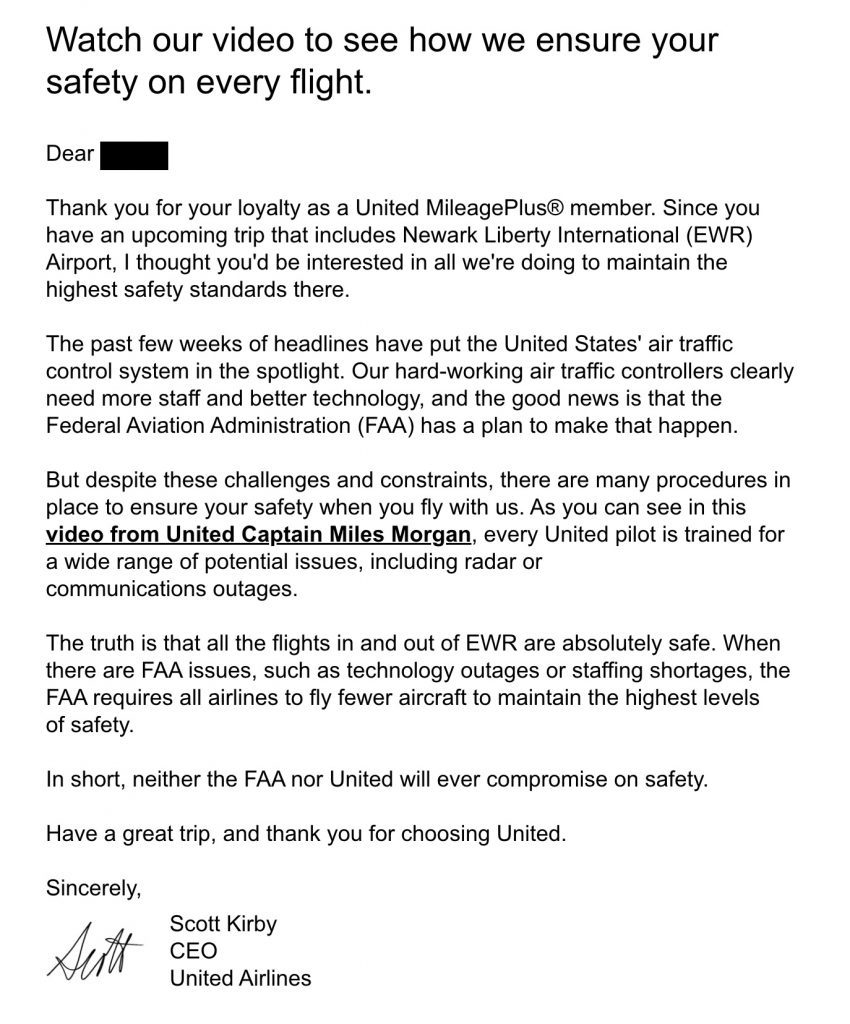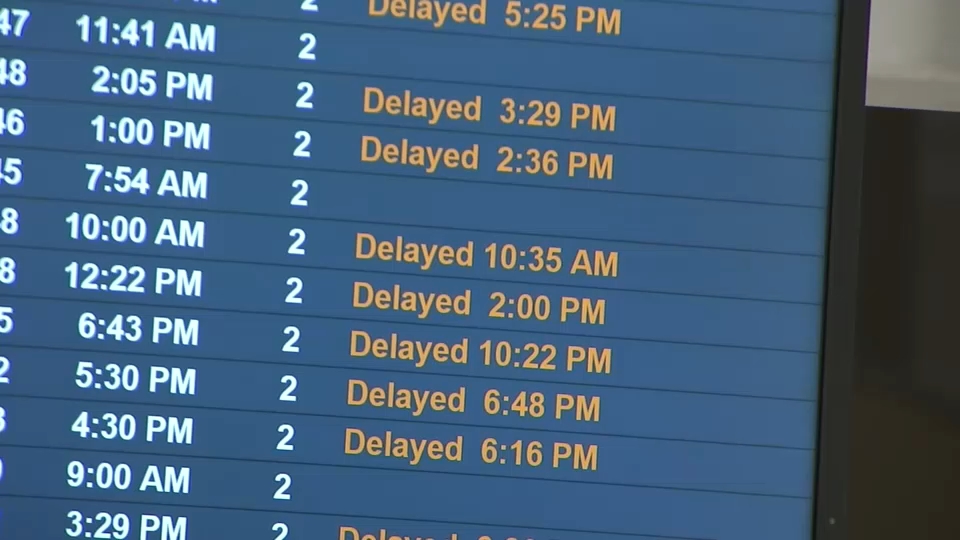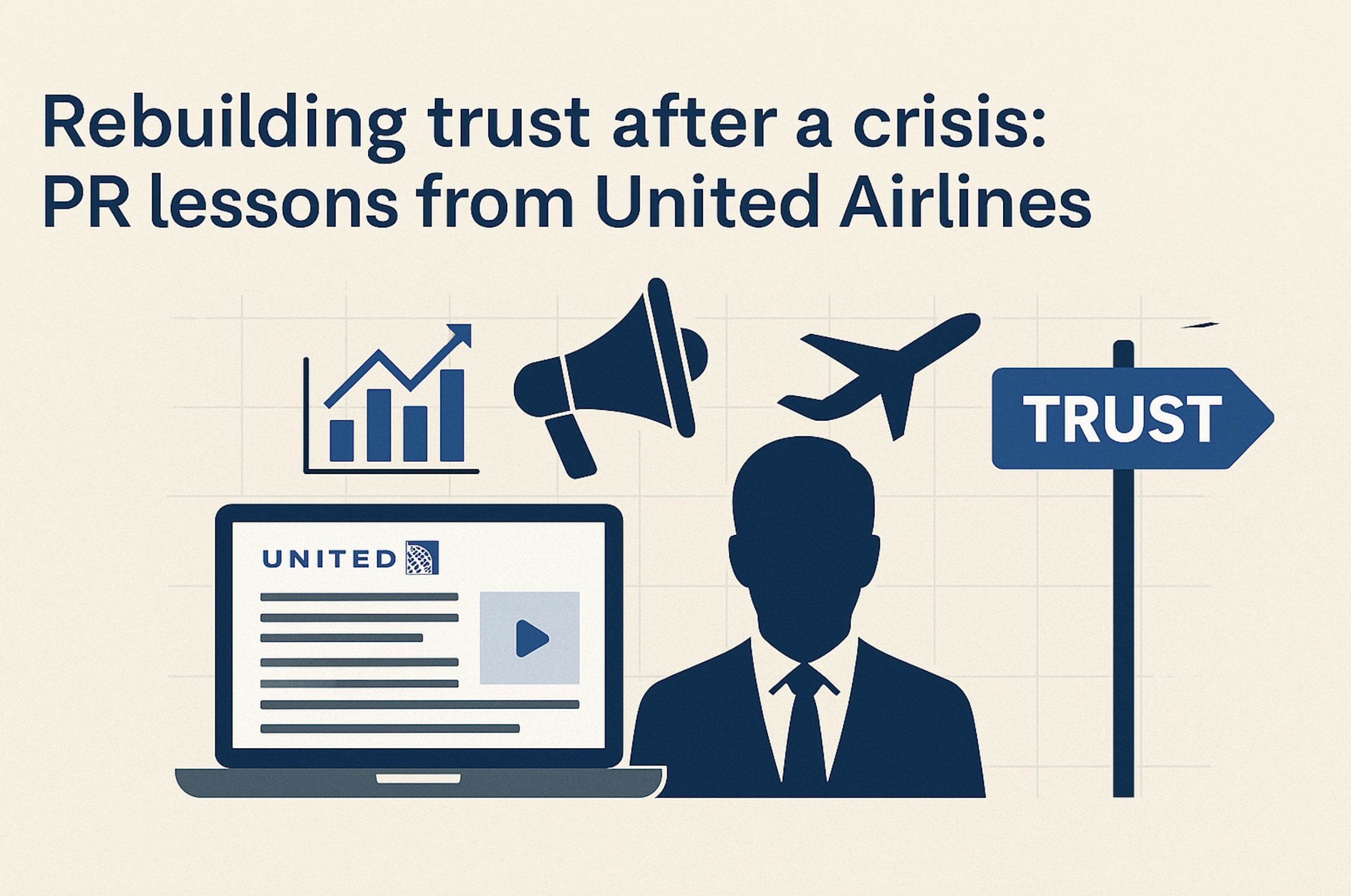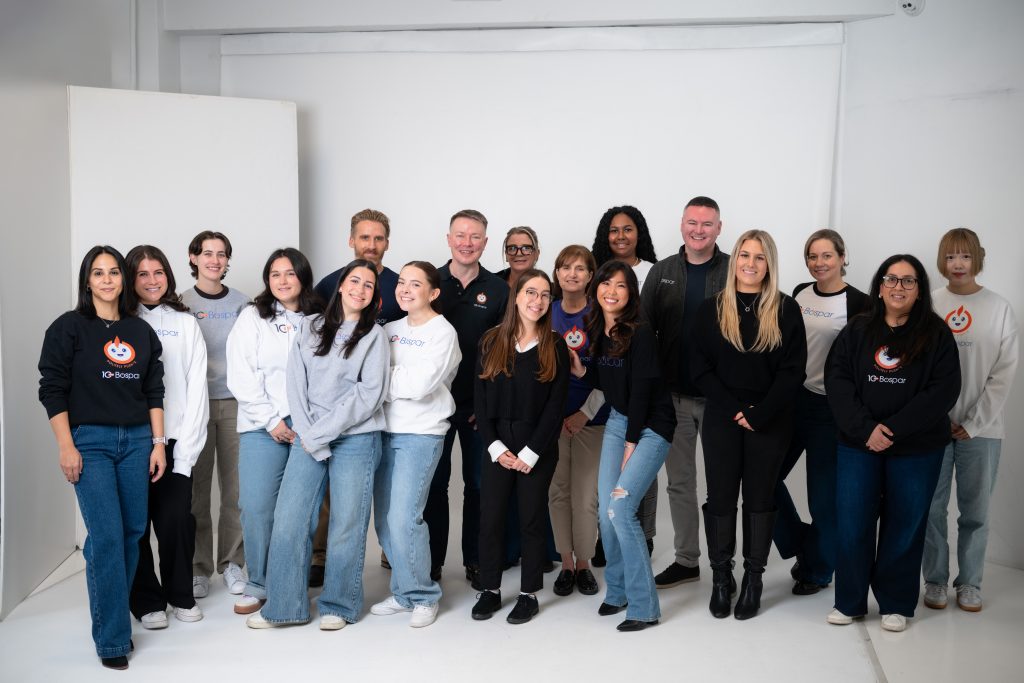When United Airlines sent out a customer email last week attempting to quell concerns about safety at Newark Airport, they likely intended it to be reassuring. Instead, it became national news for all the wrong reasons.
The message, which arrived in inboxes of MileagePlus members with upcoming flights, centered around staffing issues at the Federal Aviation Administration (FAA), safety training protocols for pilots and vague reassurances that “the truth is that all the flights in and out of EWR [Newark airport] are absolutely safe.” It was accompanied by a video from a pilot, rather than a statement from United’s CEO Scott Kirby, and stopped short of acknowledging the anxiety passengers are feeling or the disruptions they’re enduring.
Let’s be clear: this wasn’t a crisis of safety. It was a crisis of trust. And in 2025, trust is harder to earn, and easier to lose, than ever before.

Trust in 2025
We’re living in a time when consumers are hypersensitive to perceived spin. Whether it’s a data breach, a service disruption or something as serious as air travel safety, they want three things from brands:
- Empathy
- Specificity
- Accountability
United’s email missed the mark on all three.
What went wrong
First, United led with defense instead of empathy. The message emphasized systems, protocols and FAA regulations, but never acknowledged the emotional reality facing travelers. People are scared and frustrated. With summer vacations, family visits and long-standing travel plans hanging in the balance, their fear is compounded by the potential for disruption. What the email needed and lacked was a simple acknowledgment of that very human experience.
Second, the company outsourced credibility. In a moment that called for strong, visible leadership, United handed the mic to a pilot in a pre-recorded video. While pilots are trusted figures, this wasn’t the time to delegate. It was the time for Kirby to step up personally, with a direct, transparent and empathetic message that owned the moment. When leadership hides, trust erodes.
Finally, United offered reassurances, not resources. Telling customers that flights are “safe” is not the same as empowering them with actionable tools. The email lacked a real-time dashboard, didn’t mention refund or rebooking policies and failed to provide a centralized information hub. In 2025, customer care means over-communicating logistics, especially when expectations and plans are in flux.
What they should have done
From a PR standpoint, United missed a rare opportunity to reset the narrative and step forward as a leader in airline crisis communication. With the right approach, they could have shown the public that transparency and accountability aren’t just buzzwords, they’re part of the company’s DNA.
First and foremost, they should have led with empathy and clarity. A simple acknowledgment of the uncertainty travelers are facing would have gone a long way. Something along the lines of: “We know this is frustrating. You’ve made plans. You deserve to know what’s going on and what we’re doing about it.” That kind of message centers the customer and validates their experience before diving into the operational details.

Next, they needed to be aggressively helpful. That means clearly outlining policies for flight changes, refunds, or rebooking without hidden fees or vague timelines. It also means providing a real-time dashboard or centralized information hub with live updates about delays, staffing or system issues. In moments like these, the more proactive the brand, the more control customers feel they have over their plans.
Finally, United should have owned the issue publicly and strategically. Rather than sending a solitary email, they could have used this moment to galvanize the industry. A joint statement with other major carriers would have reframed the crisis as a systemic challenge requiring collective action. Instead, their message felt isolated and self-protective, an impression made worse by silence from their peers.
By showing empathy, sharing resources and stepping into a leadership role, United could have turned this into a moment of trust-building. Instead, they let the turbulence define the story.
The bigger picture
This moment is a case study for every brand navigating high-stakes visibility in 2025. In an era where news spreads in seconds and public perception can shift overnight, how a company communicates during a crisis is just as important as what the crisis is.
Whether you’re in healthcare, fintech, travel or tech, the rules of trust-building have changed. Today, every message should be written with the assumption that it will be scrutinized by the media, by stakeholders, and by the public. Even if your email is only going to customers, it should be crafted as if it’s going straight to the front page.
More importantly, brands must lead with people, not process. Hiding behind protocols and internal jargon only creates distance. What builds trust is stepping forward with honesty, humility and a genuine desire to meet people where they are.
And finally, companies must be proactive, not reactive. Waiting until headlines force your hand means you’ve already lost control of the narrative. In this landscape, speed and authenticity are everything. If you want to protect your brand, you need to get ahead of the storm.
Final thought
Trust repair isn’t about pretending the crisis didn’t happen. It’s about showing clearly, consistently and with conviction that you’re acting in the customer’s best interest. In this case, United had a chance to lead. Instead, they followed.
The good news? There’s still time to course-correct.
The better news? Your brand doesn’t have to make the same mistake.
At Bospar, we specialize in turning high-pressure moments into opportunities for credibility and connection. If you’re navigating a trust challenge or want to be prepared for when one comes, contact us at results@bospar.com. We’d love to show you what strategic, empathetic crisis communication really looks like.




